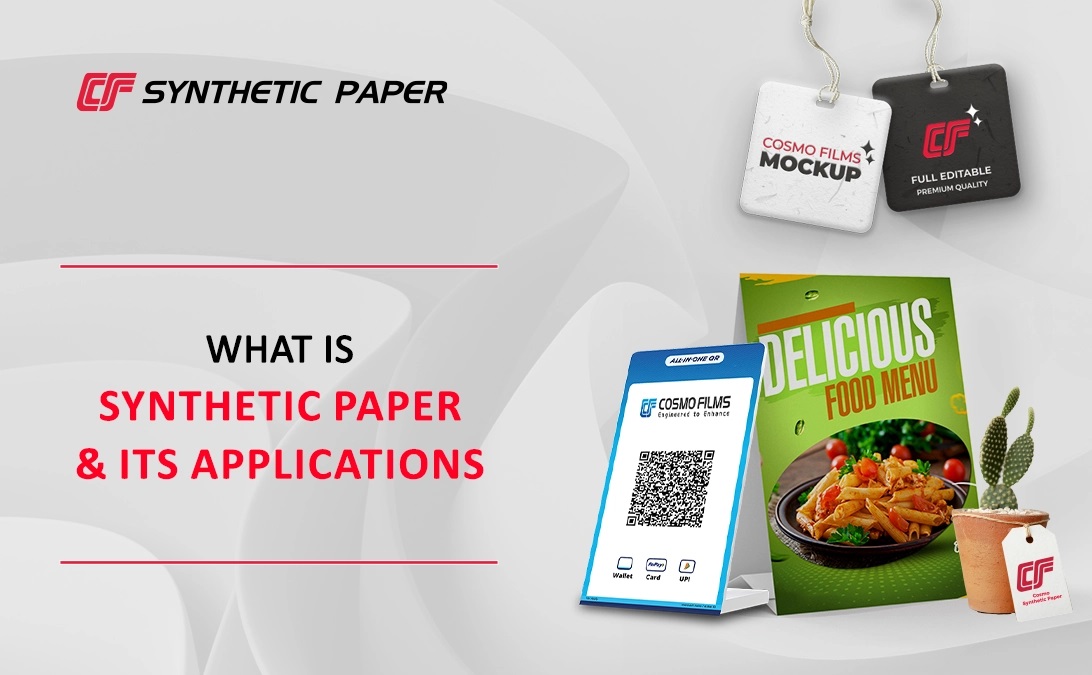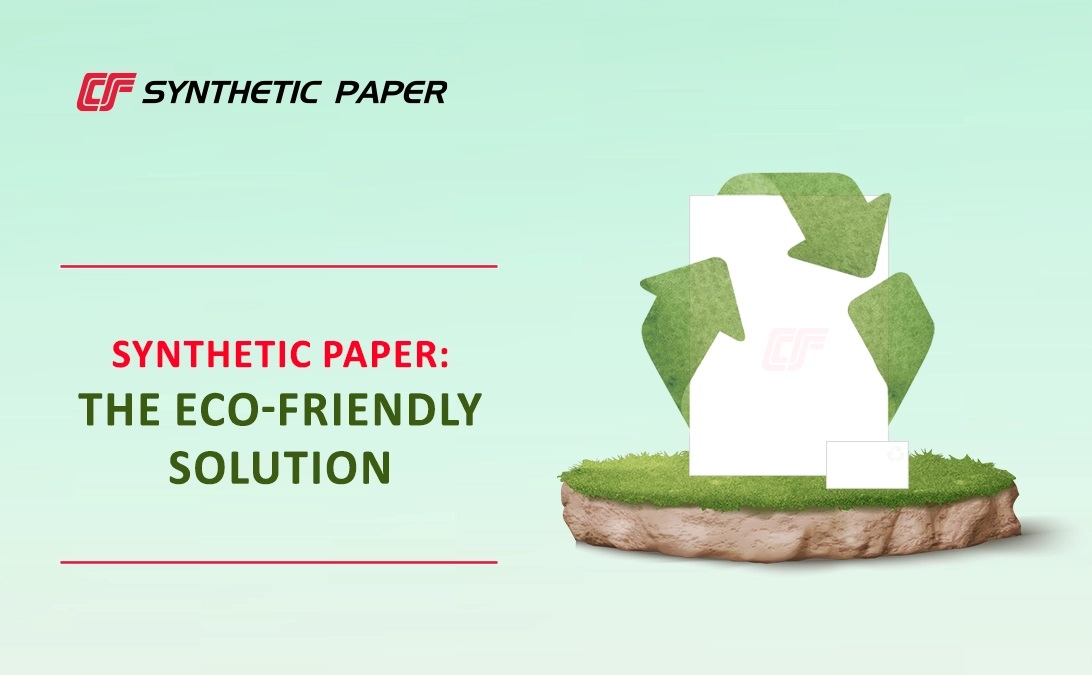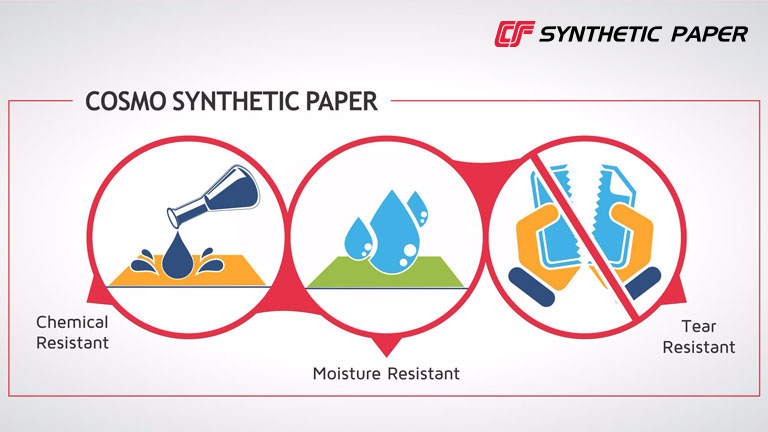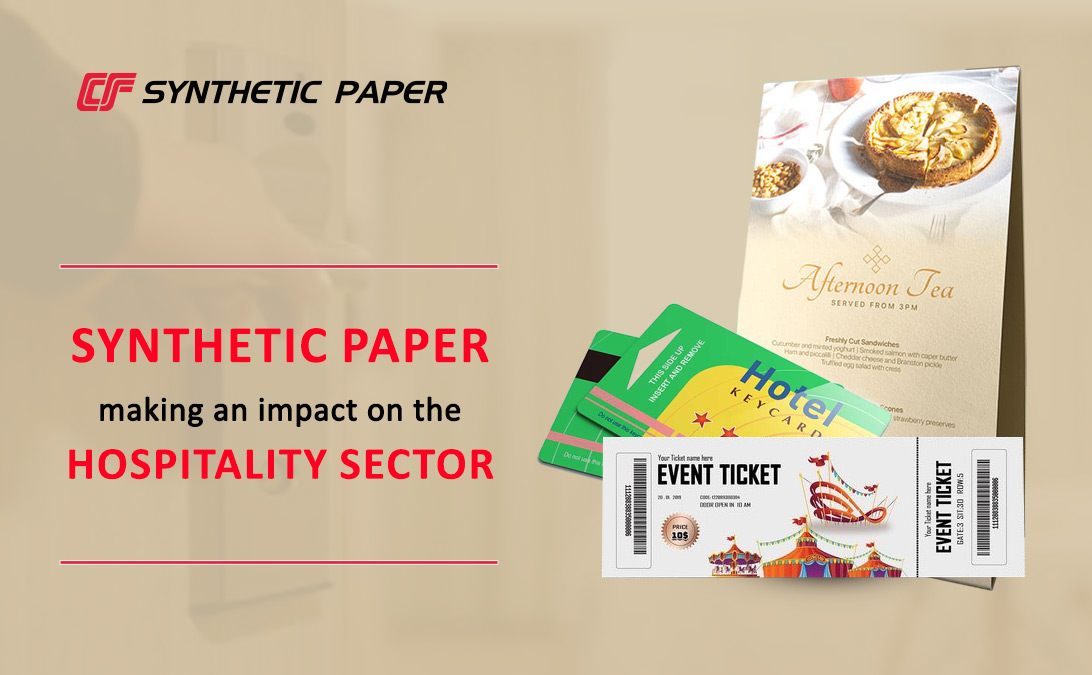Synthetic paper has become a popular choice across many industries. Its strength, durability, and resistance to water and chemicals make it a smart alternative to traditional paper. With businesses looking for better, longer-lasting materials, this non tearable paper helped resolve everyday challenges while supporting sustainability.
Let's explore the key industries that have adopted synthetic paper and what makes it valuable to them.
- Healthcare & Pharmaceuticals
In healthcare, accuracy, durability, and hygiene are non-negotiable. Synthetic paper plays a critical role in areas where traditional paper would degrade quickly or pose a contamination risk.
Applications:
- Medical charts and wristbands
- Prescription
- Surgical guides
Why it matters:
- Moisture and chemical resistance ensure labels remain legible even in labs and operating rooms.
- It's tearproof, reducing the risk of lost information in critical situations.
- It can withstand chemicals, making it ideal for use in clean rooms and hospitals.
- Industrial and Manufacturing
Factories and industrial environments are harsh on materials. Manuals and signage must survive heat, oil, abrasion, and constant handling. Synthetic paper thrives in these conditions.
Applications:
- Equipment manuals
- Workplace safety signage
Why it matters:
- Synthetic paper can last years in tough environments, reducing the need for frequent replacement.
- Premium print quality remains intact even when exposed to industrial fluids and grime.
- It's a key tool for lean operations that require clarity and durability in documentation and signage.
- Retail and Packaging
In retail, first impressions are everything. Synthetic paper provides both aesthetic and functional value, especially for brands seeking to deliver premium experience that can handle rough transport or variable conditions.
Applications:
- Hang tags for clothing
- Gift cards and loyalty cards
Why it matters:
- Tearproof tags and labels stand up to constant handling.
- It provides a premium feel that aligns with luxury branding.
- Chemical and Hazardous Materials
Labels used in the chemical industry must withstand exposure to solvents, UV light, extreme temperatures, and abrasion. Paper simply can't keep up, but synthetic materials can.
Applications:
- Drum and container labels
- Instructional placards
Why it matters:
- Regulatory compliance requires durable, legible labeling for hazardous materials.
- Chemical resistance prevents degradation or ink bleeding under exposure.
- It ensures worker safety by maintaining readable instructions and warnings over time.
- Outdoor, Travel, & Tourism
Tourism and outdoor-related industries benefit from synthetic paper's ruggedness. Whether it's a hiking map or a hotel menu by the pool, it performs where traditional paper would crumble.
Applications:
- Trail maps and travel brochures
- Outdoor signage
- Weatherproof menus
Why it matters:
- Polyester synthetic paper survives rain, sun, wind, and folding.
- It supports excellent printing, which is essential for tourism branding and informational displays.
- Businesses reduce costs by avoiding frequent replacements due to damage or moisture.
Synthetic paper is a performance material tailored to industries where strength, moisture resistance, and longevity matter. This paper will continue to prove its value in industries that demand durability and reliability by addressing challenges like wear, exposure, and sustainability.
Our synthetic paper - Cosmo Synthetic Paper, offers excellent resistance to water-moisture-chemicals, versatility, and exceptional durability. At Cosmo we commit to sustainability and manufacture environmentally conscious soluitions. Contact us today!












